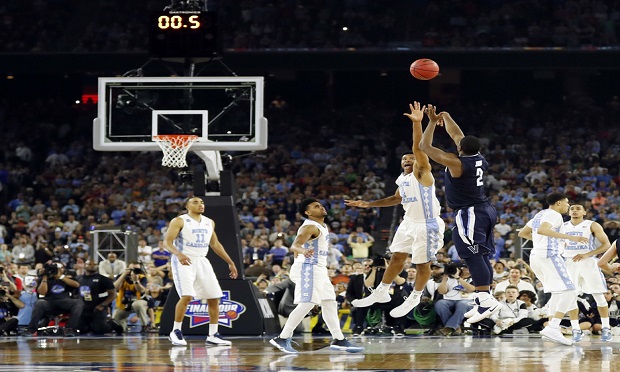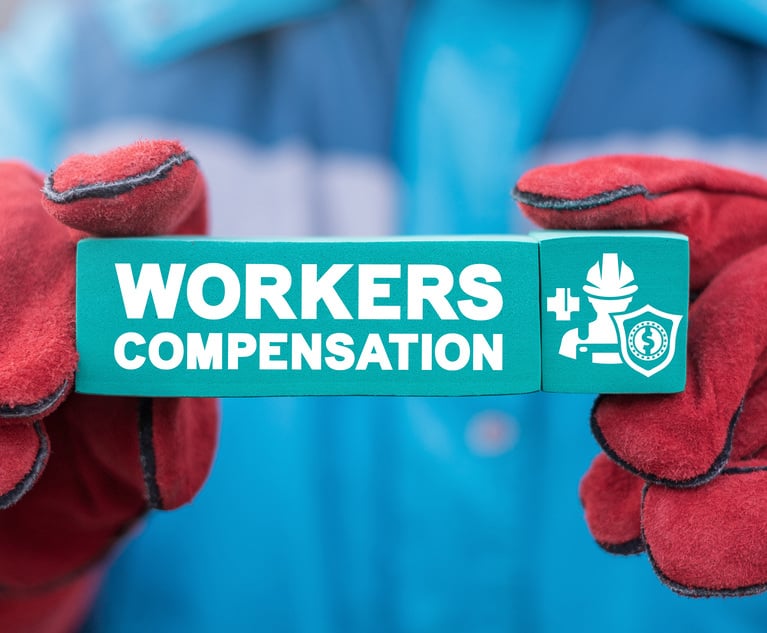 On March 12, the NCAA announcedit is canceling March Madness, the men's Division I basketballtournament, and other men's and women's basketball tournaments indivisions I, II and III, due to the novel coronavirus. In astatement, the NCAA said, "This decision is based on the evolvingCOVID-19 public health threat, our ability to ensure the events donot contribute to spread of the pandemic, and the impracticality ofhosting such events at any time during this academic year givenongoing decisions by other entities." (Photo: AP Photo)
On March 12, the NCAA announcedit is canceling March Madness, the men's Division I basketballtournament, and other men's and women's basketball tournaments indivisions I, II and III, due to the novel coronavirus. In astatement, the NCAA said, "This decision is based on the evolvingCOVID-19 public health threat, our ability to ensure the events donot contribute to spread of the pandemic, and the impracticality ofhosting such events at any time during this academic year givenongoing decisions by other entities." (Photo: AP Photo)
A year ago, some of us wereskipping work to watch our alma maters compete in the March Madnesstournament. This year, we were watching stone-skippingchampionships, sign spinning, marble racing and virtual NASCARraces to fill that void. In light of the cancellation of the annualMarch Madness tournament, along with almost all other competitivesports across the nation, and the suspension of the SummerOlympics, it's the right time to take another look at the potentialinsurance implications.
|The annual NCAA tournament bringsin the usual risks associated with college-level sporting events,but some of these risks are enhanced due to the level of play, thevenues, and the extreme popularity of the tournament. ALM sistersite Insurance Coverage Law Center (ICLC) had theopportunity to chat with Peter Williams of Allianz about theinsurance aspects of covering such events. In talking to Williams,we were surprised to find that insuring such a big event is prettystraightforward. Event coverage starts with a basic commercialproperty and liability policy but on a much largerscale.
|Generally, the venues that arechosen to host March Madness games are well-established facilitiesthat are often used for huge events, including sports events,festivals, and concerts. Tournament games are played at variousarenas in regional locations to accommodate the size of the crowdsanticipated for the multiple tournament games, and each locationgenerally handles its own coverage. Williams indicated that"underwriting is fairly easy" as the venues are well known, andgenerally able to handle large crowds.
|Event cancellation insurance
In the case of a large-scale cancellation ofthe entire tournament, the most likely insurance policy to respondwould be an event cancellation policy. Event cancellation is aspecialized form of insurance that protects a wide range ofindividuals and entities that are involved in a similarly widearray of events. Policy terms can vary, but these typically coverthe financial losses associated with the interruption,postponement, cancellation, relocation, or abandonment of an event.The policy may even cover significantly reducedattendance.
|An event cancellation policy generally covers onlyperils that are beyond the control of the insured, includingnatural catastrophes, power failure, damage to the venue, terrorismthreats, or the inability of a necessary person to appear at theevent. Event cancellation insurance can cover various types offinancial losses, including marketing, organization and otherout-of-pocket losses, as well as lost profits andrevenues.
|There are some common exclusionsthat could potentially apply. They generally involve the insured'sfailure to mitigate risks, such as the financial failure of anevent due to poor ticket sales or insufficient funding, lack of anaudience, breach of contract or labor strikes.
|Most event cancellation policiesinclude provisions that require the insureds to take "allreasonable steps" to minimize or mitigate financial lossesresulting from the cancellation or postponement of an event. Thisoften leads to rescheduling an event as opposed to canceling italtogether. Reasonable costs for mitigation can be included in aclaim for coverage.
|In the wake of COVID-19, event-cancellationinsurance will likely be the vehicle through which entities make upthe losses suffered from the decision to cancel the 2020 NCAAtournament, losses that will likely amount to over $1 billion.There are several other coverages that do come into play,however.
|Other insurance policies
There are several other types ofinsurance policy that may apply in the event of a cancellation.More than one of the following coverages could potentiallyapply.
- Postponement. Postponement of a game is not covered under an event cancellation policy, particularly when the game is early in thetournament. Many venues findthat such coverage isn't necessary; due to the nature of the MarchMadness tournament, all the games must eventually be played. A merechange in the date or time of the game won't significantly changethe revenue outcome for the venue. The real risk, from an insurancestandpoint, is in the later games, particularly the Final Four,which generally earn greater ticket revenue and have a highertelevision viewership. Postponement isn't detrimental to the venue, socancellation becomes the biggest issue. A single game may becanceled for physical damage to the auditorium, including waterdamage, flood, or fire. A game may also be canceled for terrorismthreats, such as the Las Vegas shooting, or, as we are experiencingnow, a global pandemic.
- Lost revenue. If a disaster occurs that is so detrimental tothe arena that the game can't be played there, the venue'sinsurance could respond to cover the lost revenue. Even so, in thecase of cancellation of a game due to an issue at a particularvenue, the event usually can be moved to another location, based onthe contingency plans for such occurrences. Although the games willmost likely be played eventually, fans who bought tickets to a gamescheduled in Cleveland might not be eager or able to travel toMiami to watch a game, so their tickets will have to be refundedand re-sold. Tickets must be reprinted, receipt numbers must align,row numbers must be changed, all banners, t-shirts, flyers, andsouvenirs must be reprinted. The good news? The costs associatedwith the adjustment from one venue to another would becovered. Due to thepopularity of the tournament, though, it's likely that a game,especially one further along in the tournament, will sell out nomatter its location or the time the game will be played. Even so,the venue may suffer from a loss of revenue, loss of sponsorship,and loss of food and beverage sales if a game is postponed from aprimetime Saturday evening slot to a Tuesday afternoon slot.Likewise, because television revenue is so significant, advertisingspace may be at a premium on a Sunday night, while advertisers maynot be willing to pay as much for a Tuesday afternoon. Luckily, allrevenue sales are insured under the applicable insurance policy, soif a venue cannot host a game, it will still receive someincome.
- Vendor coverage. Each vendor that comes to the premises to sellfood and beverages, as well as participate in toy and t-shirtgiveaways, has its own insurance policy. Any liability stemmingfrom those vendors, including personal injury such as foodpoisoning, should be covered under the vendor's policy.
- Evacuation concerns.Liability associated with largecrowds remains an issue when discussing the evacuation of the venueif a disaster occurs. In case of an evacuation, venues are builtwith anti-slip flooring, and janitorial staff generally cleans upspills very quickly. In the case of a newly constructed venue, theinsurance risks could actually be lower than at older locations.New venues are constructed with state-of-the-art features, andmanagement may be brought in from other places so they're alreadyexperienced in dealing with large crowds.
- Active shooters or otherthreats. Just as with any otherlarge sporting event, local law enforcement and the FBI are verywatchful of NCAA events, and security is tight. If there is agunman, a bomb threat or a terror threat, local law enforcement inhost cities are trained to deal with disasters involving largenumbers of people and are well equipped to handle a situation ifone arises. An active shooter insurance policy wouldsupplement other policies that are already in place and would coverthe cost of property damage and loss of business income, as well asmedical expenses and funeral costs forvictims.
- Fights between fans.After a game, there are sometimesaltercations between the fans of the winning and losing teams. Lawenforcement is also well equipped to deal with these types ofsituations and can defuse an altercation quickly if one arises.Williams also indicated that venues often play a part byshepherding event-goers through metal detectors before they areallowed to enter the event, and by cutting off alcohol salessometime before the end of the game, allowing fans to sober up alittle before heading home or heading out to celebrate awin.
Fortunately for host cities, NCAAfans are not quite as extreme as some other sports fans. Even so,if fans destroy vehicles or shops, the venue and its carrier arenot liable for those actions, and the carrier will not be called onto provide coverage.
|Venues that serve or sell alcoholmay be subject to dram shop laws that hold businesses legallyresponsible for the actions of consumers who cause harm to a thirdparty after consuming too much alcohol. For the insured, unless their business is thatof selling, serving or furnishing alcohol, the liquor liabilityexclusion would not apply. A venue is not in thatbusiness — it is in the business of selling event tickets.Therefore, the venue would have coverage for ancillary exposure tothe selling of the alcohol through the exception to the exclusion.The vendor would be responsible for liquor sales.
- Player safety. Basketball games, especially at this level ofcompetition, can quickly become rough, and a player's personalsafety may be at risk. Because they are all college students, NCAAplayers are often still covered under their parents' healthinsurance or have health insurance through the school for whichthey play. When they agree to play for a team, the players assumethe risks associated with playing the game. There is no personalinjury liability on behalf of the venue for the players on acollege basketball team. If a team loses a player due to injury,the team will have to replace the player for the remainder of thetournament.
- Cybersecurity. Cyber risks and the precautions that are takento prevent a cyberattack are often unknown. To be effective, anattack would have to be very sophisticated to keep up withprecautions put in place by the venue, law enforcement, andtelevision networks. A cyberattack could interrupt the transmissionof a game over network television, but this risk generally onlybecomes an issue with pay-per-view television programs. Fans thatare using smartphones in the stands and logged into the Wi-Fioffered by the venue could potentially be vulnerable to masshacking. Insurance coverage for losses that occur due to acyberattack is available as a special policy.
The type of cancellation that is happening in the sportsindustry is completely unprecedented, and nobody knows exactly howthe sports industry, and also the insurance industry, will recoverduring 2020 and into 2021. Although March Madness was canceled forthis year, the tournament is expected to be back next year, and thenecessary insurance coverage for the tournament will be thesame.
|Related:
- Cyber threat looms as unknown March Madnessinsurance risk
- How insurance can protect the future earnings oftop athletes
- 8 essential types of insurance for the 2018 FIFAWorld Cup
Want to continue reading?
Become a Free PropertyCasualty360 Digital Reader
Your access to unlimited PropertyCasualty360 content isn’t changing.
Once you are an ALM digital member, you’ll receive:
- All PropertyCasualty360.com news coverage, best practices, and in-depth analysis.
- Educational webcasts, resources from industry leaders, and informative newsletters.
- Other award-winning websites including BenefitsPRO.com and ThinkAdvisor.com.
Already have an account? Sign In
© 2024 ALM Global, LLC, All Rights Reserved. Request academic re-use from www.copyright.com. All other uses, submit a request to [email protected]. For more information visit Asset & Logo Licensing.








